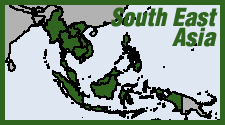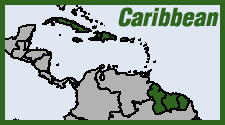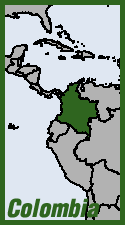 Despite a democratic opening and hopes for peace with the ethnic insurgencies in the northern hinterlands, horrific accounts of rights abuses continue to emerge from the multi-sided war over Burma's opium production. According to reports from village leaders, Burmese army troops on Jan. 19 tortured, raped and killed two young volunteer teachers. The women were both Kachin and Christians, so may have been targeted for ethnicity or religion. The attacks came when the village of Shabuk-Kaunghka, in Shan state's Mungbaw township, was occupied by a Light Infantry battalion that entered the area following clashes with the Kachin Independence Army (KIA). New fighting erupted after three police officers and a local highway administrator were detained by the KIA while carrying out a road inspection in the area. They were released after mediation, but clashes continue.
Despite a democratic opening and hopes for peace with the ethnic insurgencies in the northern hinterlands, horrific accounts of rights abuses continue to emerge from the multi-sided war over Burma's opium production. According to reports from village leaders, Burmese army troops on Jan. 19 tortured, raped and killed two young volunteer teachers. The women were both Kachin and Christians, so may have been targeted for ethnicity or religion. The attacks came when the village of Shabuk-Kaunghka, in Shan state's Mungbaw township, was occupied by a Light Infantry battalion that entered the area following clashes with the Kachin Independence Army (KIA). New fighting erupted after three police officers and a local highway administrator were detained by the KIA while carrying out a road inspection in the area. They were released after mediation, but clashes continue.

 The Jamaican cabinet on Jan. 19 approved a bill to decriminalize possession of personal quantities of ganja (as the stuff is endearingly called in Jamaica's legal code). Beyond that, the bill would establish a Cannabis Licensing Authority to oversee cultivation, sale and distribution for medical, spiritual and industrial purposes. Possession of two ounces or less would be a ticketable infraction, leaving no criminal record. While public use would remain banned, the law would establish both a medicinal and religious defense, as well as permiting licensed cultivation of industrial hemp. The bill, officially the Dangerous Drugs (Amendment) Act of 2015, now goes to the Senate for approval. Justice Minister
The Jamaican cabinet on Jan. 19 approved a bill to decriminalize possession of personal quantities of ganja (as the stuff is endearingly called in Jamaica's legal code). Beyond that, the bill would establish a Cannabis Licensing Authority to oversee cultivation, sale and distribution for medical, spiritual and industrial purposes. Possession of two ounces or less would be a ticketable infraction, leaving no criminal record. While public use would remain banned, the law would establish both a medicinal and religious defense, as well as permiting licensed cultivation of industrial hemp. The bill, officially the Dangerous Drugs (Amendment) Act of 2015, now goes to the Senate for approval. Justice Minister  In another case of Colombian villagers staging a local uprising in response to militarization of their communities, on the night of Jan. 18 residents of La Emboscada hamlet at Argelia municipality in the conflicted southern region of Cauca detained 36 army troops for several hours. The rebellion was sparked by the death of a local resident who was shot when he tried to run an army checkpoint on his motorbike. Troops of the 56th Infantry Battalion were immediately surrounded by angry villagers, disarmed, and marched off to the Argelia cabacera (municipal building). Village authorities finally agreed to release the soliders after the government agreed to send a team to mediate. Colombia's official human rights ombudman, the
In another case of Colombian villagers staging a local uprising in response to militarization of their communities, on the night of Jan. 18 residents of La Emboscada hamlet at Argelia municipality in the conflicted southern region of Cauca detained 36 army troops for several hours. The rebellion was sparked by the death of a local resident who was shot when he tried to run an army checkpoint on his motorbike. Troops of the 56th Infantry Battalion were immediately surrounded by angry villagers, disarmed, and marched off to the Argelia cabacera (municipal building). Village authorities finally agreed to release the soliders after the government agreed to send a team to mediate. Colombia's official human rights ombudman, the  We recently noted that the ultra-puritanical ISIS has been burning the cannabis fields in the territory it controls in northern Syria—and that the
We recently noted that the ultra-puritanical ISIS has been burning the cannabis fields in the territory it controls in northern Syria—and that the  Mexican authorities on Jan. 8 detained 13 members of a local police force in the state of Veracruz in connection with the Jan. 2 abduction of journalist Moisés Sánchez. The detained constitute a third of the police force in the town of Medellín. State prosecutor
Mexican authorities on Jan. 8 detained 13 members of a local police force in the state of Veracruz in connection with the Jan. 2 abduction of journalist Moisés Sánchez. The detained constitute a third of the police force in the town of Medellín. State prosecutor  2014 witnessed considerable fraying of the international Drug War consensus—but the horrific violence that finally sparked this long-overdue reckoning continued to take its grim toll. On the upside, Uruguay regsitered its
2014 witnessed considerable fraying of the international Drug War consensus—but the horrific violence that finally sparked this long-overdue reckoning continued to take its grim toll. On the upside, Uruguay regsitered its 






Recent comments
2 weeks 3 days ago
3 weeks 4 days ago
3 weeks 4 days ago
4 weeks 6 days ago
10 weeks 23 hours ago
12 weeks 3 days ago
17 weeks 4 days ago
29 weeks 4 days ago
31 weeks 5 days ago
32 weeks 5 days ago